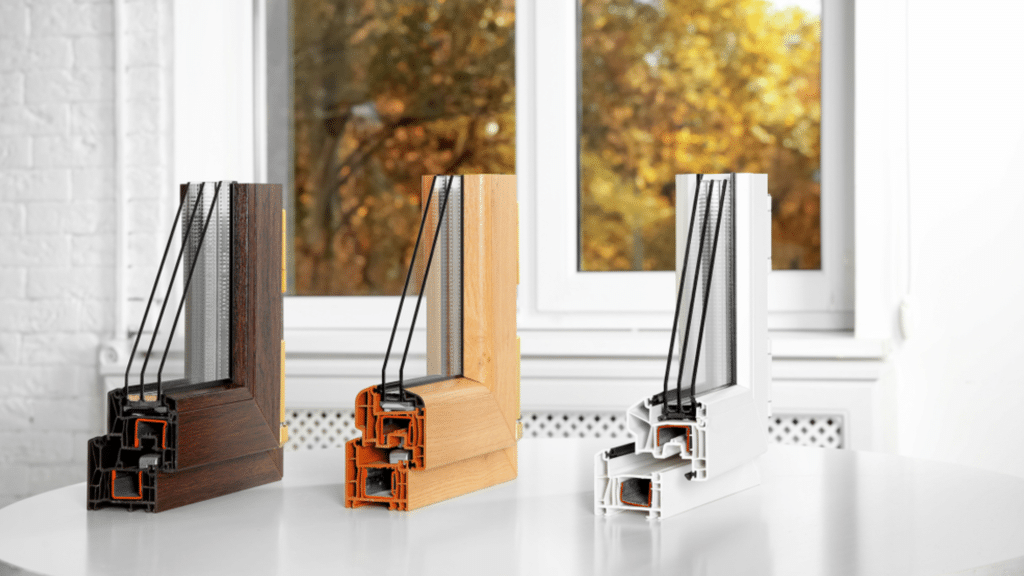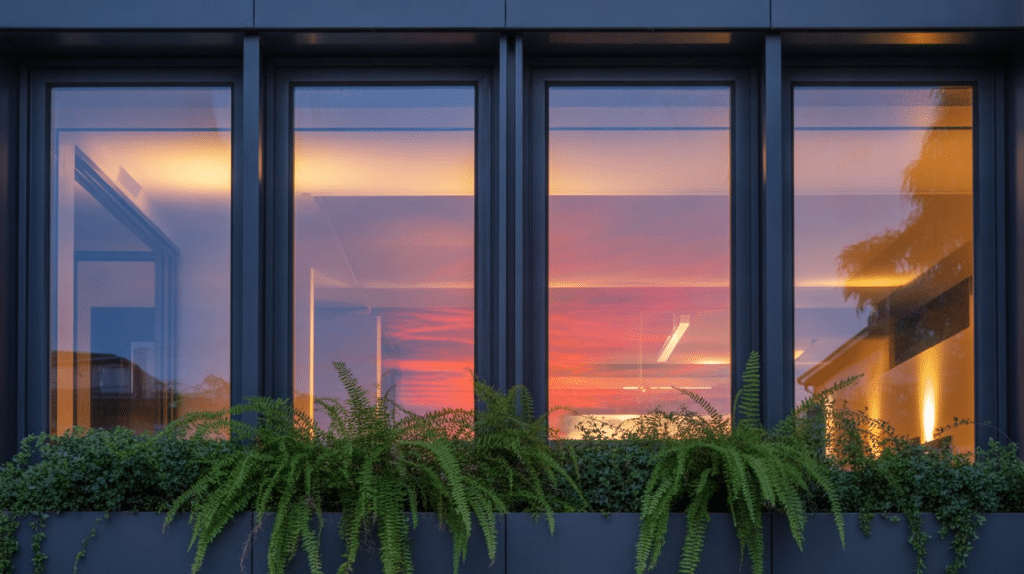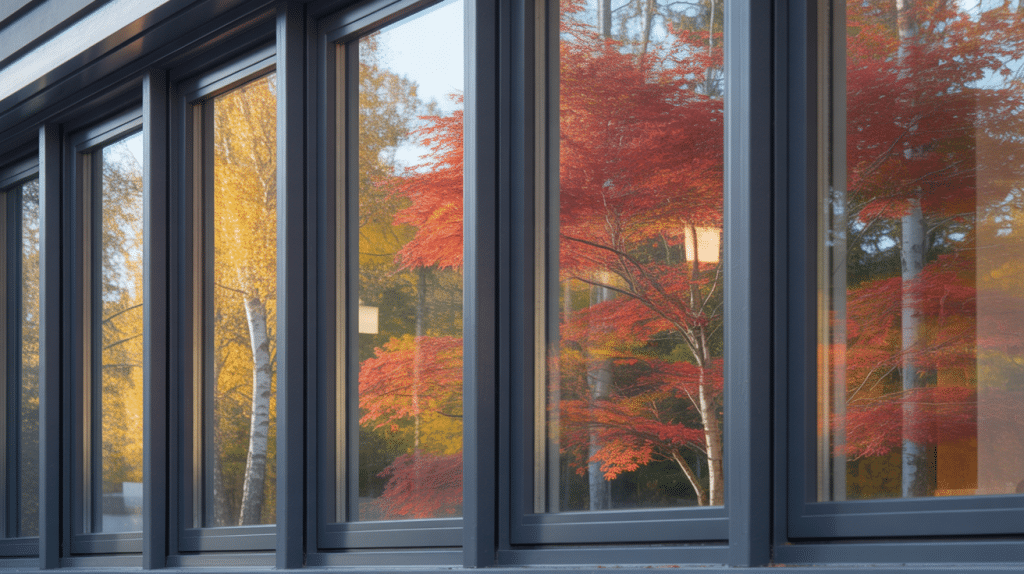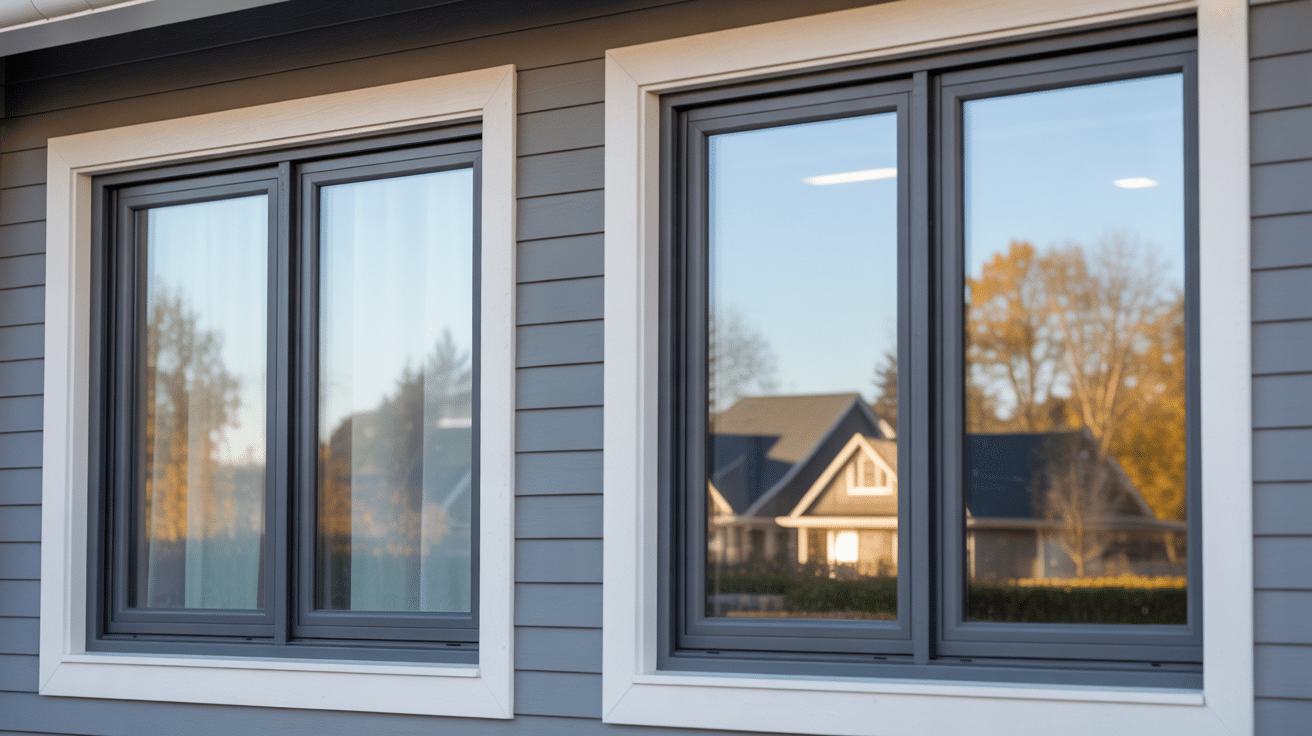Rising energy costs and environmental concerns have made energy-efficient windows a top priority for homeowners nationwide.
Double-pane and triple-pane windows lead the market as the most popular choices, offering significant improvements over outdated single-pane systems.
However, choosing between these two options requires careful consideration of multiple factors, including performance capabilities, insulation properties, energy efficiency ratings, and cost considerations.
Understanding these key differences ensures that you make an informed decision, delivering optimal comfort and long-term value for your home.
What are Double-Pane and Triple-Pane Windows?

Think of your windows as your home’s shield against the elements.
- Double-pane windows feature two glass layers separated by a gas-filled space, creating an insulating barrier that prevents heat transfer. It’s like wearing a jacket – that air pocket keeps warm air in and cold air out.
- Triple-pane windows take this concept further, using three glass layers with two gas-filled chambers. Imagine adding a vest under ytour jacket for extra warmth – that’s essentially what the third pane accomplishes.
Both systems work by trapping inert gases, such as argon, between the glass layers, dramatically reducing both heat loss and gain.
Key Differences Between Double-Pane and Triple-Pane Windows
tpa
When choosing between window types, understanding the fundamental differences between double-pane and triple-pane systems helps determine which option best suits your home.
| Aspect | Double Pane Windows | Triple Pane Windows |
|---|---|---|
| Energy Efficiency | Moderate insulation; better than single pane but less effective than triple pane. | Superior insulation, providing better overall energy efficiency and temperature control. |
| Sound Insulation | Good noise reduction but less effective than triple pane. | Significantly better at reducing outside noise, ideal for urban areas or noisy streets. |
| Heat Retention | Decent heat retention, but can still lose heat in extreme temperatures. | Enhanced heat retention, reducing heat loss in winter due to the extra layer of glass and gas fills. |
Which One Performs Better in Extreme Conditions?
When facing nature’s most challenging weather, your windows become the frontline defense for your home’s comfort and energy efficiency.
Cold Climates
- Superior Heat Retention with Triple Pane: Triple pane windows create an additional insulating barrier that dramatically reduces heat loss during harsh winters.
- Reduced Condensation and Cold Spots The enhanced insulation properties of triple-pane windows help eliminate uncomfortable cold zones near windows and prevent condensation buildup.
Hot Climates
- Enhanced Solar Heat Rejection: Triple pane windows significantly reduce solar heat gain through advanced glass technology and additional layers.
- Double-Pane Performance in Moderate Climates: In temperate regions with mild seasonal variations, double-pane windows often provide adequate insulation and energy efficiency.
Pros and Cons of Double-Pane vs Triple-Pane
Understanding the advantages and disadvantages of each window type helps homeowners make informed decisions based on budget, climate, and performance priorities.
| Window Type | Pros | Cons |
|---|---|---|
| Double Pane |
|
|
| Triple Pane |
|
|
Cost Considerations: Is Triple Pane Worth the Investment?
Triple-pane windows cost 25-50% more than double-pane ($450-900 vs $300-600 per window), but deliver $15-40 annual energy savings per window in cold climates.
For a typical 25-window home, the $7,500-15,000 premium pays for itself in 8-15 years through reduced heating costs. In mild climates, savings drop to $3-$ 10 annually, extending the payback period to 20-40 years.
Triple-pane makes financial sense in northern regions with high energy costs, while double-pane offers better value in temperate zones with lower utility rates.
When Should You Choose Double-Pane or Triple-Pane Windows?
Choose double-pane for mild climates and budget-conscious options; opt for triple-pane for extreme weather conditions, enhanced noise reduction, and maximum long-term energy savings.
Choose Double-Pane Windows When

- Mild Climate Regions – Perfect for areas with moderate seasonal temperature variations where extreme insulation isn’t necessary for comfort or significant energy savings.
- Budget-Conscious Projects – Ideal when upfront costs are a primary concern and you need decent energy efficiency improvements without premium pricing.
- Rental Properties – Suitable for investment properties where moderate upgrades provide tenant comfort without requiring maximum long-term energy performance.
- Quick Replacement Needs – Best option when you need immediate window replacement with readily available products and faster installation timelines.
Choose Triple-Pane Windows When

- Extreme Climate Conditions – Essential for regions with harsh winters or scorching summers, where superior insulation dramatically impacts comfort and utility bills.
- Noise Reduction Priority – Perfect for homes near busy roads, airports, or urban areas where soundproofing significantly improves quality of life.
- Long-Term Investment Focus – Ideal when you plan to stay in your home for many years and want maximum energy savings over time.
- Premium Home Features – Best choice for luxury homes or when seeking the highest performance standards regardless of initial cost considerations.
Conclusion
Double and triple-pane windows both offer significant energy efficiency improvements over single-pane systems, but serve different needs and budgets.
Double-pane windows provide excellent value for moderate climates and budget-conscious homeowners, while triple-pane windows excel in extreme weather conditions and offer superior soundproofing.
Your decision should take into account your local climate, energy costs, long-term living plans, and available budget.
The right choice varies for every home and situation, making professional guidance invaluable for optimal results.
Ready to upgrade your windows? Contact local window professionals today for a personalized assessment and quote tailored to your home’s specific needs and climate conditions!


